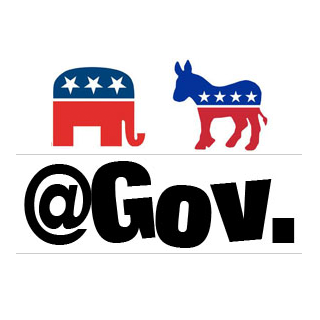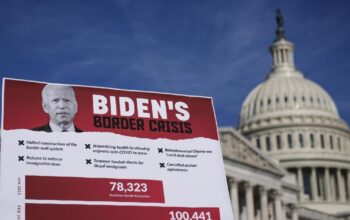Juan Pablo Rivera Garza
Blogs Editor

Presidential debates can make-or-break either candidate involved. Some past debates, such as the 1960 Presidential election (when a sweaty Richard Nixon lost to John F. Kennedy) and 1980 (when a bright and optimistic Ronald Reagan beat a feeble Jimmy Carter,) show that they can end up winning elections. There are other examples of this being false, such as Walter Mondale’s victory over Reagan in the first Presidential debate of 1984 and the strong debate performances of John Kerrey against George W. Bush during the 2004 election, when the debate winners did not win the actual election. So, what effect does a debate have on a presidential race? It’s difficult to tell, but in the coming days there will be shifts in the polls for the person who best performed during the debates. But, for now, let’s run down who helped their electoral chances and performed the best.
There are four categories that each candidate is graded on: Substance, Attacks, Emotional Connection, and Personal Presentation. These four factors are great determiners to who will end up winning the sliver of undecided voters still left and the presidency.

Substance:
This election, like so many before in American history, boils down to the question of what the role of government should be in America. This question fits in squarely with the main issues of the debate, how to overcome economic stagnation, how to fix the entitlement system, and the issue of healthcare. Unfortunately, neither candidate posed enough substantive responses on these major issues. Both candidates focused on generalities of their plans, and very few specifics. The President spent more time criticizing Romney’s proposed policies than presenting his own. Governor Romney’s extent of explanation on his plan to cut spending was cutting funding to NPR and PBS (Big Bird especially,) both of which present an insignificant portion of the mammoth federal budget.
Winner: TIED

Attacks:
With little substance to present on both sides, attacks and zingers were fairly plentiful. Although many people claim that negativity causes voters to abandon support for their candidates, the truth of the matter is attacks help sway elections. Whenever Governor Romney was confronted with a rising challenger during the Republican Primaries earlier this year, he would use attacks against them during debates to effectively crush their momentum. It was obvious during this debate that old habits do not die quickly for the Governor, and it played heartily in his benefit. The President meanwhile was fairly flat with his attacks, and presented little of the zingers that his base hoped he would use against the Governor (i.e. the 47 percent or anything Bain Capital related)
Winner: ROMNEY

Emotional Connection:
I have heard many people ask “why are people still undecided at this point?” It’s a good question; each candidate has laid out their beliefs, and most people know the basic difference in governmental philosophy between President Obama and Governor Romney. The truth of the matter is that most undecideds select who to support based on an emotional connection with the candidate. That is the reason people in the Romney campaign have been so desperate to improve his faltering favorability ratings. The President is still well-liked by the American people (even if his policies are not), but during this debate the tables turned. The President looked under confident detached and too professorial compared to the Governor, who had obviously practiced personal anecdotes that humanized him greatly to the American people.
Winner: ROMNEY

Personal Presentation:
Like I mentioned before, the 1960 Presidential debate had a huge affect on the results of the election, in which a confident and young John F. Kennedy beat a sweaty and tired Richard Nixon. The President looked tired, old, and under-confident, a big deal when so many undecideds will be voting based on their gut, primal instincts. Governor Romney looked very confident, much younger than the President (even though he’s more than a decade older than him) and ripe with energy.
Winner: ROMNEY
httpv://www.youtube.com/watch?v=dkrwUU_YApE
Both candidates need to work on the presentation of their economic policies and the specific within them, but unfortunately the deciding factor of this election will likely not rely upon that factor. Instead, emotional connections, attacks, and personal presentation will count as much more important than any specifics of their policy ideas and political agendas. Remember, elections are usually not decided on one debate, but they can prove to be the necessary boost a candidate needs to win the election.
OVERALL WINNER: ROMNEY




